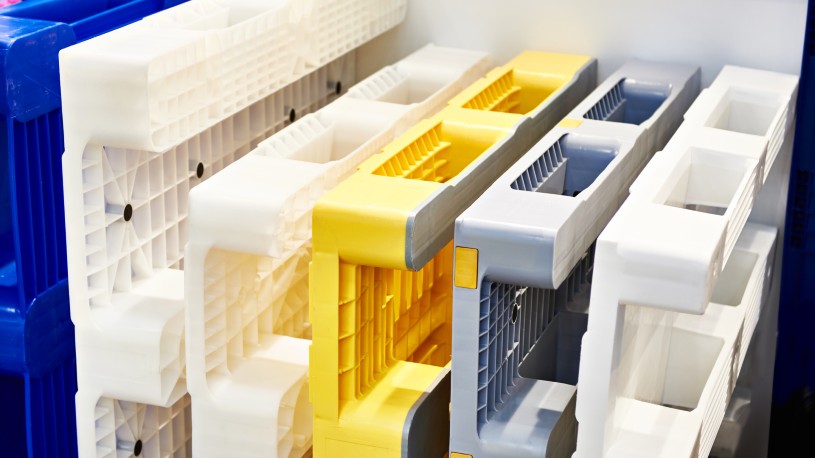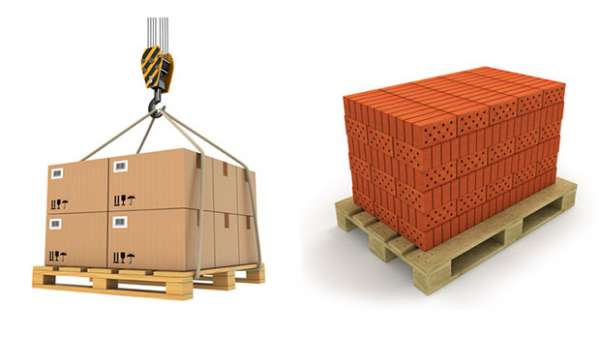How to choose between plastic and wooden pallets
Choosing the right pallet for your application is more than a simple decision between materials — plastic or wood. Price plays a significant role. You need to consider:
- Which one is more cost-efficient in the short and long term?
- Are there specific advantages or disadvantages of one or the other for your particular needs?
- What could go wrong if you choose the wrong material and how much would that cost you and your business?
Plain Pallets has been operating since 1974, and we have the expertise to advise you on plastic pallets or wooden pallets are better for your business.
Pallet price guide
Pallet pricing is based on several factors — the material of construction, whether the pallets are new or second hand, the load rating and other factors. As such, it is vital to check the details of a pallet before deciding if it's the right option and cost for your business.
As a general rule, plastic pallets cost approximately three times the price of a wooden pallet at the time of purchase. However, that is not the whole story. Plastic pallets have a longer life, and therefore the lifecycle cost is lower.
Lifecycle costs
Lifecycle costs can be defined as the total amount spent on a product over its useful life divided by that useful life. In other words, it is a dollar-per-year value taking into account the purchase and maintenance costs over its life.
Wooden pallets last between 3 and 5 years depending on their use and care, but plastic pallets can last from 10 to 15 years. Wooden pallets can be maintained during their life and repaired when damaged, which will add to the total expense over their life. However, this is not true for plastic pallets. Once they are past their useful life, they must be melted down and recycled.
Taking these factors into account, the lifecycle cost of wood and plastic pallets are probably similar to each other if they are well cared for.
Cost of product damage and contamination

Choosing the wrong type of pallet can cost a company in other ways. This mismatch is particularly relevant in the food and beverage sector as well as pharmaceuticals. Both these industries require a high level of cleanliness, and the consequences of product damage or contamination are severe.
Wooden pallets are porous. They absorb moisture and allow bacteria to grow or insects to find a home. The authorities thoroughly investigate any bacteria causing human sickness. Companies face fines and product recalls should inspectors find contamination related to the transport of food or medicines.
Studies into contamination in the pharmaceuticals industry show that the issue does have significant financial implications. One study estimated the industry cost of pallet contamination to be more than $1 billion, which does not include the damage to reputation from product recalls.
Protruding nails and splinters also pose problems for food and medical products. They can easily rip the packaging resulting in wastage and contamination.
Wooden pallets have limitations when it comes to food and beverage and pharmaceuticals. These limitations have the potential to cost companies far more than the initial purchase price of buying plastic pallets over wooden.
Cost of overloading

Another consideration is that wooden pallets have higher load ratings than plastic pallets. Due to the nature of wood and the construction methods, it is possible to re-enforce wooden pallets to accommodate almost any load. But plastic pallets are designed with a load rating, which cannot be changed after construction.
When dealing with heavy loads, wooden pallets have lower risks than plastic pallets. They are less likely to break under load. Plastic is also slippery, which makes stacking heavy pallets on top of each other quite dangerous. Heavily loaded pallets could slip, causing damage to property and injuries to workers.
Cost of no insurance
Insurance and liability coverage is an essential component of pallet pricing. You may find cheap pallets from a supplier who does not take out this kind of insurance, but there are risks to this approach. Insurance protects you against pallet failure and damage to products. The lower purchase cost may seem like a good idea at the time, but the cost of product loss and public liability will far outweigh this saving.
It is also crucial that your recycled pallet supplier is licensed as a second-hand dealer. This process will ensure that they meet all the regulatory standards and provide you with an assurance of the service you are getting.
Talk to Plain Pallets for expert advice
Contact Plain Pallets for expert advice about which pallet is the best for you. Our technical experts help you understand the hidden costs, and the advantages and disadvantages of plastic and wood.
Contact Plain Pallets to get a quote for your pallet needs.
Must Read
Plain Pallets on 29 April 2014
How to Get Greater Mileage out of Your Pallets
Do your pallets go the distance? If not, you may be losing money through replacement costs and damaged goods. Get the most out of your pallets ...
Read morePlain Pallets on 11 March 2014
Plain Pallets Display the Future of Sustainability
Pallets are always useful. See the many ways old pallets can be reused. Who knows, maybe your next house or business will have some great pallet furniture! ...
Read more